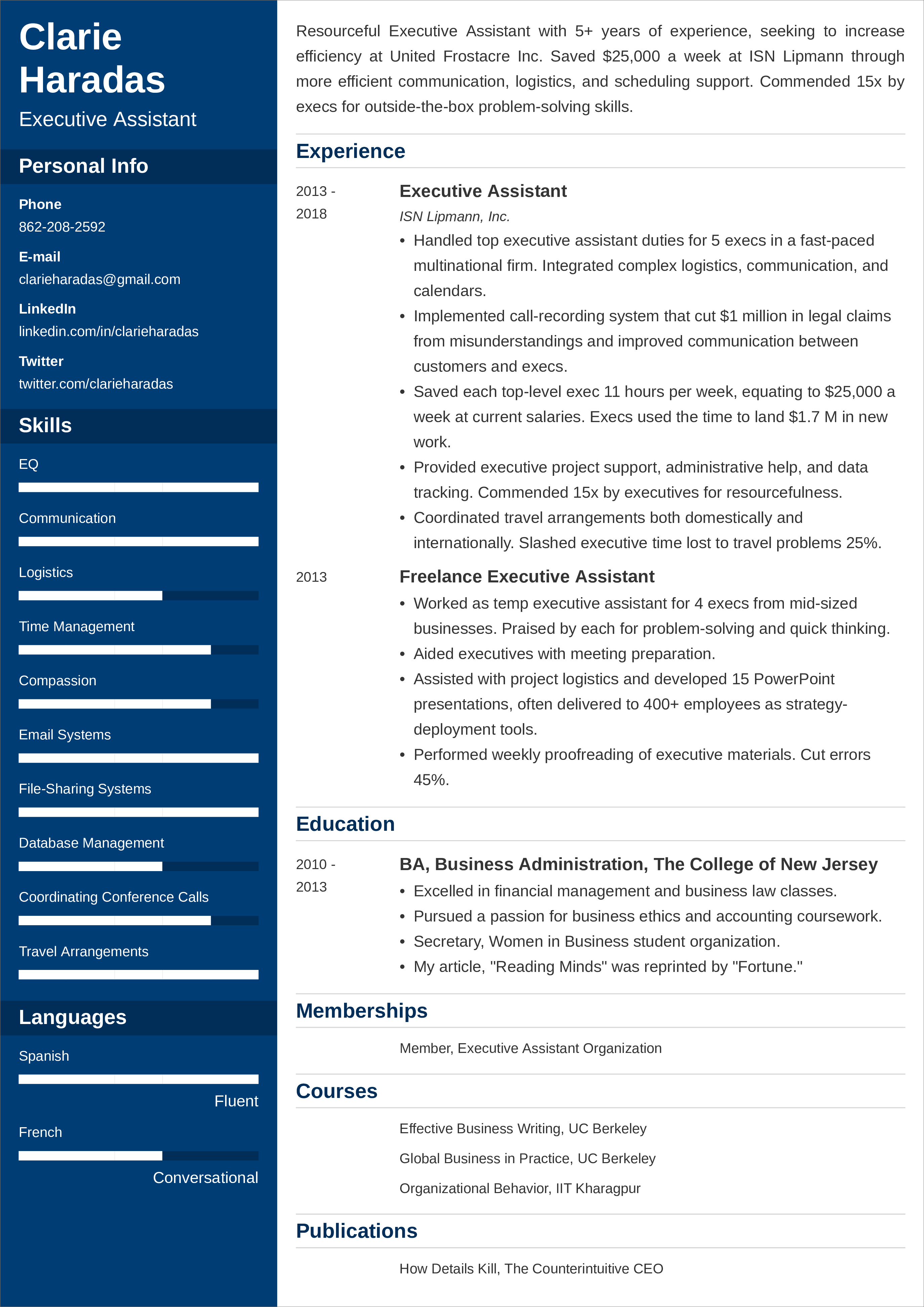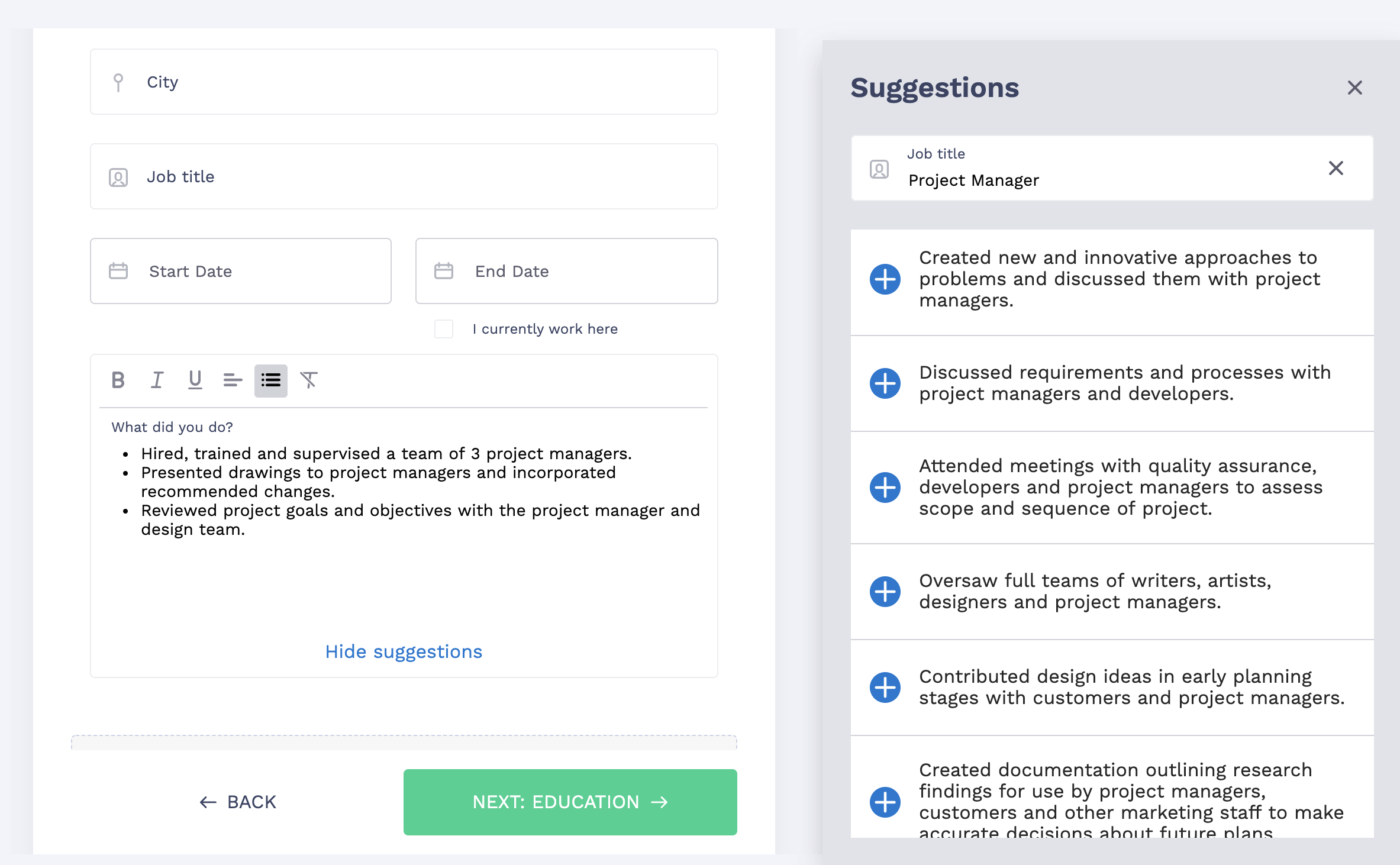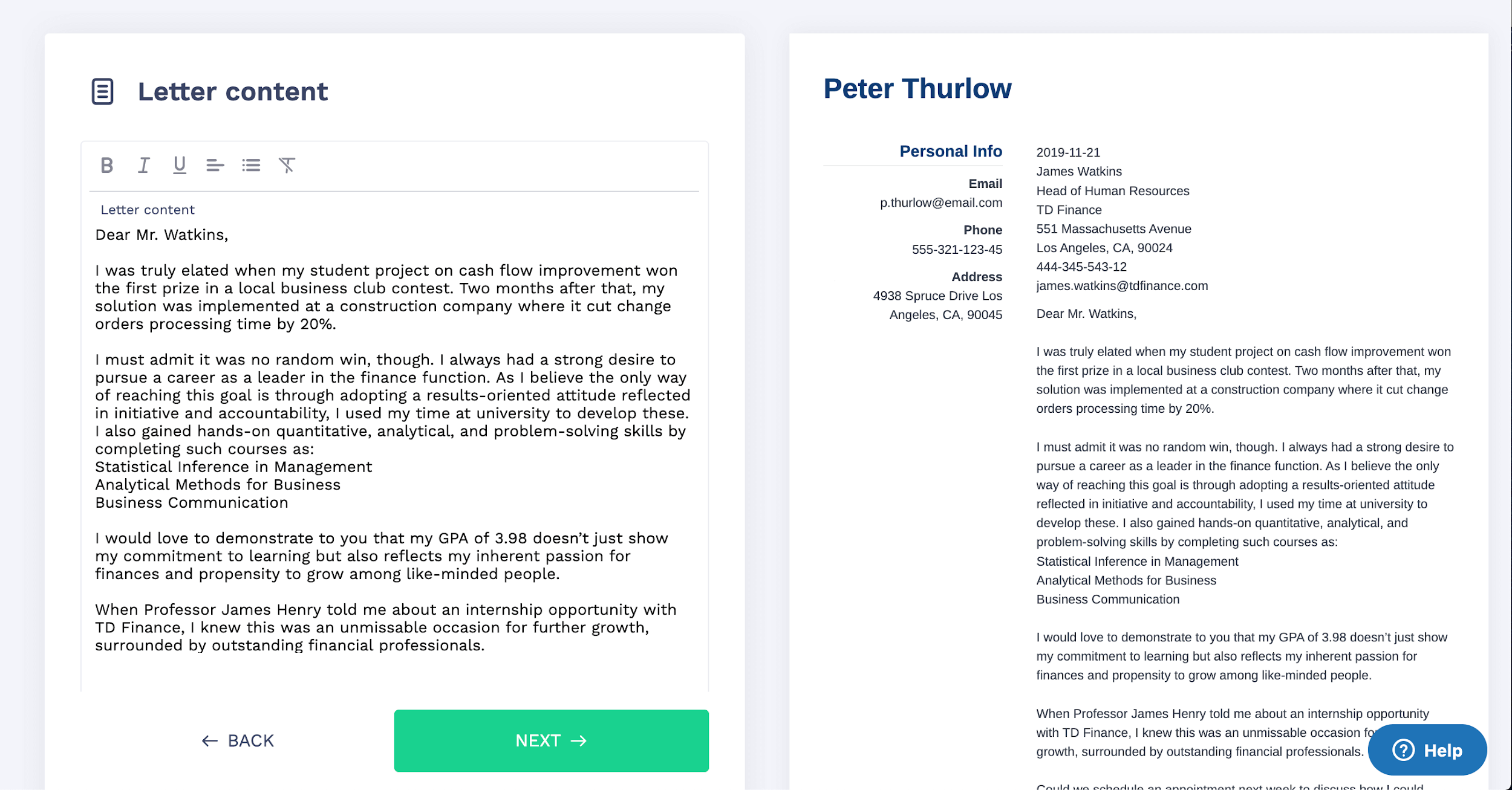
How to Write an Internship Resume: 3 Examples & Guide

Roma Kończak, CPRW
Career Expert

To land that dream job, you must submit the right recruitment documents. So, if the employer requires a CV rather than a resume, you’d better make sure you know what a CV is.
There are three recruitment documents every job seeker should be familiar with: A resume, a cover letter, and a CV.
While the first two are rather well known to most, the last one tends to be confusing. All the more so as it refers to something different in various countries. Not to worry. We’ll show you exactly what a CV is.
In this guide you’ll learn:
Save hours of work and get a CV like this. Pick a template, fill it in. Quick and easy. Choose from 18+ CV templates and download your CV now.

What users say about Resumelab:
I had an interview yesterday and the first thing they said on the phone was: “Wow! I love your CV.”
Patrick
I love the variety of templates. Good job guys, keep up the good work!
Dylan
My previous CV was really weak and I used to spend hours adjusting it in Word. Now, I can introduce any changes within minutes. Absolutely wonderful!
George
Are you looking for some CV/resume examples? See:
Haven't found what you're looking for? Check all our Resume Samples to Land any Job.
Here’s a curriculum vitae definition:
The “CV” abbreviation stands for curriculum vitae which means “course of life” in Latin. In the US and Canada, a CV refers to a recruitment document detailing your academic and employment history, along with your skills and achievements.
In contrast to resumes, CVs can be very extensive and include detailed lists of your academic awards, grants, scholarships, publications, research projects, or coursework.
This is why a CV is a standard document when you’re pursuing a career in academia. Not so much so when seeking employment in a non-academic role.
A typical CV form can consist of such sections as:
If you’re looking for more detailed information, as well as CV examples and templates, head straight to our guide on how to make a US curriculum vitae for academic positions.
The ResumeLab builder is more than looks. Get specific content to boost your chances of getting the job. Add job descriptions, bullet points, and skills. Easy. Improve your CV in our CV builder now.

Nail it all with a splash of color, choose a clean font, and highlight your skills in just a few clicks. You're the perfect candidate, and we'll prove it. Use our CV maker now.
The definition of a CV differs depending on geography.
As we’ve already established, in the US and Canada a CV means a recruitment document you’d normally use when applying for academic positions as well as grants, fellowships or scholarships.
The situation looks different in Europe and New Zealand, though. In these regions, a curriculum vitae, or CV, refers to a document that’s very much like an American resume. In other words:
In Europe and New Zealand, a CV is a document that briefly outlines your work experience, skills, education, and professional achievements, and you use it to apply for regular positions.
So even though in these countries the word “resume” isn’t used at all, a United Kingdom curriculum vitae will be very much like an American resume, both in terms of its function and form.
In fact, you can learn the ins and outs of writing a job-winning CV from our dedicated guide.
In other anglophone countries such as South Africa and Australia, both terms CV and resume are used interchangeably to refer to a document similar to a US resume.
Expert Hint: Check out our collection of CV writing guides for 50+ professions. Each guide comes with a CV example and template you can copy and adjust for your needs.
Now, let’s go back to the US and have a look at how to distinguish a CV from a resume, and how not to confuse either with a cover letter:
|
Resume |
CV |
Cover Letter |
|
|
Length |
Usually 1-2 pages |
No limits |
1 page, 4 paragraphs, up to 350 words |
|
Focus |
Experience and skills |
Education and academic achievements |
Motivation behind applying for the post |
|
Use |
Standard, non-academic positions |
Academic positions, grants, fellowships, research programs, etc. |
Complementary to a resume |
|
Purpose |
Shows relevant experience that proves you fit the role |
Offers a detailed account of your academic career |
Introduces you to the recruiter, offers the whys and wherefores of your application |
|
Form |
Bullet points arranged in sections |
Paragraphs grouped in sections |
Coherent and cohesive paragraphs, a letter format |
As you can see, the CV and resume aren’t the same, and they also differ from a cover letter. However, the table above only highlights the most prominent aspects of the three recruitment documents.
If you wish to learn more about the CV vs. resume difference, we have a separate in-depth guide explaining each and every discrepancy.
If you decide you don’t need a CV as much as a resume, you can head straight to our guide on how to write a job-winning resume. And obviously—
To give your career a serious boost and improve your chances of landing a job, learn how to write a cover letter that impresses recruiters.
Double your impact with a matching CV and cover letter combo. Use our cover letter generator and make your application documents pop out.

Want to try a different look? There’s 18 more. A single click will give your document a total makeover. Pick a cover letter template here.
Here’s all you need to know about what a CV is:
Do you have any other questions about what a CV is? Would you like to share your opinion on the subject? We’re always happy to hear from you. Give us a shout out in the comments below!
At ResumeLab, quality is at the crux of our values, supporting our commitment to delivering top-notch career resources. The editorial team of career experts carefully reviews every article in accordance with editorial guidelines, ensuring the high quality and reliability of our content. We actively conduct original research, shedding light on the job market's intricacies and earning recognition from numerous influential news outlets. Our dedication to delivering expert career advice attracts millions of readers to our blog each year.


Roma Kończak, CPRW
Career Expert

Looking for the perfect college resume template? Learn how to write your college application resume with this guide and secure a spot in the top colleges.

Mariusz Wawrzyniak
Career Expert

Need help writing a Europass CV? In this article, I give you the complete guide to creating a professional and effective CV. I will also give you the current Europass CV template.

Mariusz Wawrzyniak
Career Expert